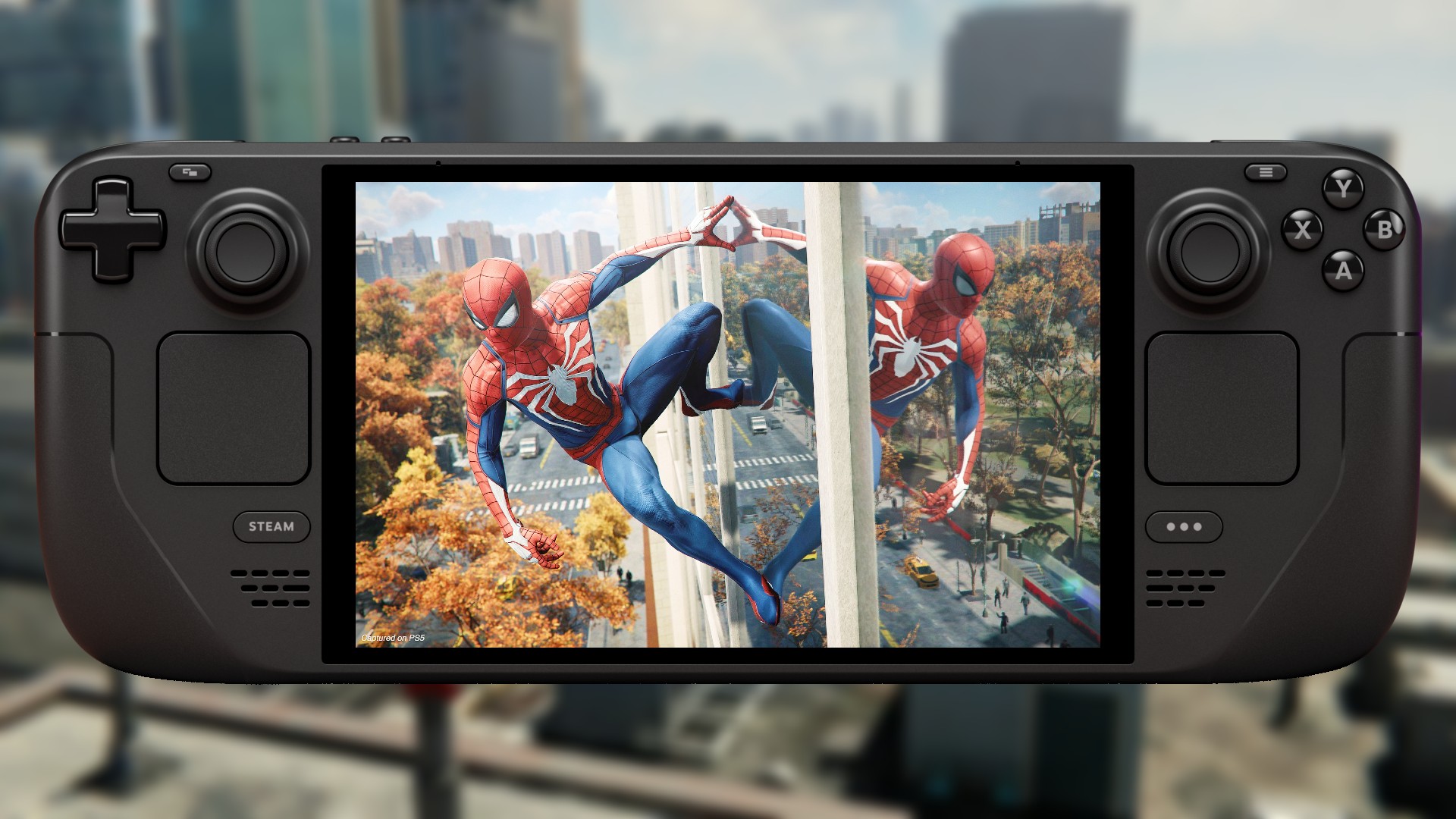AMD FSR 3.1 has been added to Spider-Man: Remastered and four other PlayStation titles, which in itself seems like quite tame news, but for Steam Deck owners, it’s incredibly exciting. Not only does the addition of this feature mean the games run better on higher graphical settings, but it could see the Steam Deck remain relevant for far longer than we imagined.
As the best handheld gaming PC, the Steam Deck is often used as the measuring stick for all other devices. The latest firmware update, SteamOS 3.6, brings improved support for AMD FSR 3.1, which has big implications for the Steam Deck’s life cycle.

AMD FSR 3.1, which can offer both FidelityFX Super Resolution upscaling and Frame Generation, can take a passable game on Valve’s portable and considerably boost performance. The reason I highlighted Spider-Man: Remastered earlier is because I’ve seen examples of players pushing this game into its Very High graphical settings with FSR 3.1 enabled, and still achieving smoothly playable frame rates in the 60-70fps range, with just occasional drops down to the 40s.
There is always the risk that enabling these two technologies will create input lag or visual artifacts. However, my early testing on Ghost of Tsushima and Horizon Forbidden West suggests that the performance boost is considerable, and the graphical downsides are remarkably small.
In fact, I would put it to Valve that it may even be worth reassessing Horizon Forbidden West and its Steam Deck rating. It’s currently marked as Unsupported due to its demanding graphics, but if Nixess were to create a Steam Deck graphical preset, with AMD FSR 3.1 enabled, there’s no reason why it shouldn’t be marked as ‘Playable’ at least.
More importantly, AMD FSR 3.1 can have a huge impact in games outside of the five PlayStation titles to which it was recently added. As the Steam Deck hardware starts to show its age, and more powerful handhelds flood the market, FSR 3.1 offers a genuine way to ensure the Deck still performs in new releases, and it may even take off the pressure when it comes to releasing the highly anticipated Steam Deck 2.
Time will tell whether this can be the start of a secure future for big triple-A games on Valve’s handheld, but even if some of the best Steam Deck games just run better, it’s a positive change that every Deck owner should be excited about.

